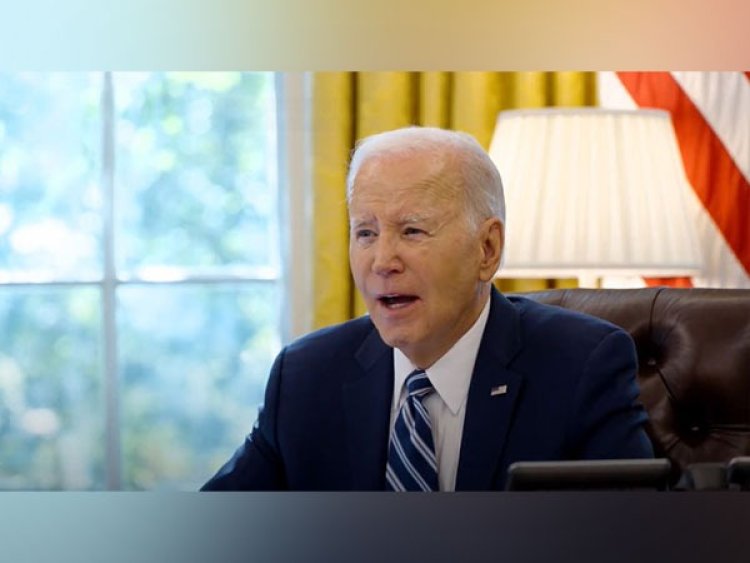US President Joe Biden projected to win Michigan's Democratic presidential primary

Michigan, US: US President Joe Biden secured a win in Michigan's Democratic primary on Tuesday, NBC News projects. There was never a doubt over Biden's win against his rival, Representative Dean Phillips. However, the only question was the extent to which a loose-knit movement dissatisfied with his inability to restrain the Israeli military would cut into his margin by voting "uncommitted."
The "uncommitted" vote on Tuesday (local time) stood at 16 per cent, with 10 per cent of expected votes counted, the report said. Notably, the uncommitted vote in Michigan's Democratic primary was 11 per cent when former US President Barack Obama ran for re-election in 2012, according to NBC News report.
Among those voting "uncommitted" was Representative Rashida Tlaib, a Michigan Democrat and Palestinian-American. In a video shared on X, Tlaib stated, "President Biden is not hearing us."
As Phillips is unable to gain any momentum in his presidential bid, Biden is focused on the general election and looming rematch with his 2020 opponent, former US President Donald Trump.
Days before Michigan's primary, a Biden campaign aide called the race uncompetitive. Speaking on condition of anonymity, the aide said, "We're really focused on the general election." The aide added, "This primary is uncompetitive, so people will use this time to speak their minds."
Before the primary, high-profile surrogates visited Michigan on behalf of Biden. Speaking to union, minority and suburban voters whose support is important for Biden to win in November. In a bid to mobilise voters, they talked about Biden's record and warned of the consequences of the re-election of Trump, NBC News reported.
Last week, US Vice President Kamala Harris visited Grand Rapids to talk about abortion rights, an issue that Democratic strategists believe will galvanize suburban women in the fall.
She said, "The people of Michigan cannot sit back and take comfort without also understanding that elections matter and that there is a full-on, concerted effort to pass a national ban, which would mean the people of Michigan would not be safe."
More than any other primaries to date, the contest in Michigan was a kind of referendum on Biden's support for Israel amid its ongoing war with Hamas. Biden has lost support in his party due to the rising death toll in Gaza and his refusal to demand a permanent ceasefire.
Carol Reynoso, a Democrat from Dearborn, voted for Biden in 2020 and cast a vote for "uncommitted" on Tuesday. In an interview with NBC News, Reynoso said, "I think it's a great opportunity to get the message to the administration that people in Michigan are concerned about what's going on, and that there's a large group of people that want a ceasefire."
Organizers of the "vote uncommitted" campaign expressed hope that if they could reduce Biden's margin in Michigan, they could put pressure on him to change his approach and use his influence with the Israeli government to withdraw its forces.
If the uncommitted vote is more than 15 per cent in any congressional districts or statewide, Michigan will send at least some delegates who do not back Biden to the Democratic National Convention scheduled to be held in August. Some Democrats have said that there is not much time for Biden to reunify a party that has been divided over the war.
Last week, US Representative Ro Khanna, who met with students and Arab leaders in Michigan, said that even if Biden is able to bring a ceasefire in the ongoing war between Israel and Hamas Gaza, there would still need to be "healing" time before Democrats were again comfortable with his leadership, according to NBC News report.
In an interview, Khaana said, "There needs to be an urgent course correction, and by that, I don't mean months. I mean weeks. And there will have to be thinking and strategy for how we win back this community," NBC News quoted him as saying.
He said, "It's not going to be, 'OK, the president called for a ceasefire and the war is over,' and two days later you have everyone suddenly behind the president."















































